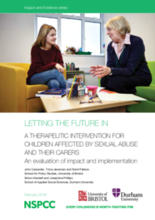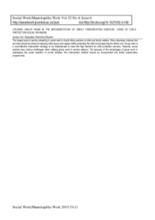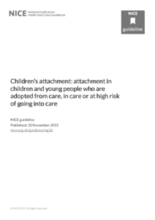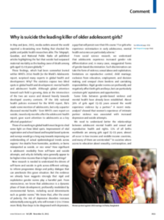Displaying 321 - 330 of 525
This study was aimed to identify adjustment problems of adolescents residing in an orphanage in Kerala, India, as well as to find out the association between adjustment problems of adolescents residing at orphanage with their socio-demographic variables.
In this study, clinical program directors from 59 residential treatment facilities in the US responded to an online survey addressing the representation of adopted youth currently being served by their organization, the extent to which adoption issues are incorporated into clinical intake and treatment processes, and the training needs of clinical staff related to adoption.
In this study, clinical program directors from 59 residential treatment facilities in the US responded to an online survey addressing the representation of adopted youth currently being served by their organization, the extent to which adoption issues are incorporated into clinical intake and treatment processes, and the training needs of clinical staff related to adoption.
This study examined (1) how perceived social support (PSS) varied across orphan‐related characteristics (e.g., orphan status, such as single, maternal or paternal, and their living environments, such as in child‐headed households, on the street, in an orphanage or in a foster home) and (2) the relative importance of sources of PSS (relatives/community/adults and peers) and functional social support (emotional/informational/instrumental and social) and its association with emotional well‐being and mental distress.
This independent report, from University of Bristol and Durham University, draws on information from the largest randomised controlled trial of a service for children affected by sexual abuse.
Community-based organizations (CBOs) have the potential to provide high quality services for orphaned and vulnerable children in resource-limited settings.
This study used cross-sectional data from 1848 South African children aged 9–13 to address three questions: whether CBOs are reaching those who are most vulnerable, whether attending these organizations is associated with greater psychosocial wellbeing, and how they might work.
This paper discusses the style and efficacy of child preservation services for the purpose of reducing child abuse and neglect.
This guideline covers the identification, assessment and treatment of attachment difficulties in children and young people up to age 18 who are adopted from care, in special guardianship, looked after by local authorities in foster homes (including kinship foster care), residential settings and other accommodation, or on the edge of care.
This comment from the Lancet discusses the rising rate of suicide among adolescent girls worldwide.





